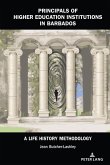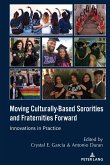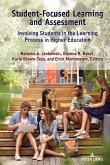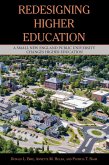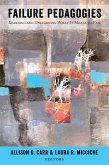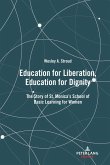This book uses the life stories of principals of higher education institutions in Barbados to assert that since lives are socially constructed and our biographies or stories can influence our professional life, it is important to not only listen to the personal stories or narratives of those whose professional lives and actions have public social consequences but more importantly through a life history methodology, also to contextualize those stories. In so doing there is better understanding of what motives or values persons bring to their professional practice, particularly too, if those missions and values emanate from a colonial hegemony still in existence within a postcolonial society. Persons could be causing harm or doing what is beneficial. They need to know what they are perpetuating and why. This book is primarily for those with interests in domination, power, capitalism, colonialism and neocolonialism; those planning professional development courses for teachers, principals and administrators in the field of education and other areas of professional practice; life history researchers; auto-ethnographers; postgraduate students and qualitative researchers in higher education, specifically and education, generally.
***
"Jean Butcher-Lashley has made a unique contribution to the literature around teachers' lives and careers in general and those of Caribbean teachers in particular. Taking a decolonising life history which considers individuals' personal and professional narratives in the contexts of the times through which they lived, this fascinating book gives important insights into how and why Barbadian higher education principals' careers evolved as they did and what the consequences for the country's education system have been."-Pat Sikes, Professor of Qualitative Inquiry, University of Sheffield
***
"This book is of considerable importance, not just in the contingent area of understanding Barbadian higher education principals' motives and missions-but because it takes an important life history approach. This approach looks at de-colonising the accounts that are given, so as to give us a broader picture of how professional life histories are conceptualised and constructed.
The book essentially contextualises each of the life history profiles, in a way that allows us to see the effect of colonisation and the effect of time and place on the way that people story their professional lives. This is part of a broader project which well elucidated in the book on 'Understanding Pervasive Patterns of Domination'. The book stands as a useful antidote to those kinds of narrative studies which ignore context and simply concentrate on voice. To make sure that 'voice' is an empowering genre-it is important that 'voice' is located in its contextual landscape.
This book is an exemplary piece of work that does this work of contextualising, both energetically and with great erudition.
I heartily recommend the book to any readers in life history approaches generally, or those interested in issues of decolonisation and domination."
-Ivor Goodson, Professor of Learning Theory, University of Brighton, Sussex, England
***
"Jean Butcher-Lashley has made a unique contribution to the literature around teachers' lives and careers in general and those of Caribbean teachers in particular. Taking a decolonising life history which considers individuals' personal and professional narratives in the contexts of the times through which they lived, this fascinating book gives important insights into how and why Barbadian higher education principals' careers evolved as they did and what the consequences for the country's education system have been."-Pat Sikes, Professor of Qualitative Inquiry, University of Sheffield
***
"This book is of considerable importance, not just in the contingent area of understanding Barbadian higher education principals' motives and missions-but because it takes an important life history approach. This approach looks at de-colonising the accounts that are given, so as to give us a broader picture of how professional life histories are conceptualised and constructed.
The book essentially contextualises each of the life history profiles, in a way that allows us to see the effect of colonisation and the effect of time and place on the way that people story their professional lives. This is part of a broader project which well elucidated in the book on 'Understanding Pervasive Patterns of Domination'. The book stands as a useful antidote to those kinds of narrative studies which ignore context and simply concentrate on voice. To make sure that 'voice' is an empowering genre-it is important that 'voice' is located in its contextual landscape.
This book is an exemplary piece of work that does this work of contextualising, both energetically and with great erudition.
I heartily recommend the book to any readers in life history approaches generally, or those interested in issues of decolonisation and domination."
-Ivor Goodson, Professor of Learning Theory, University of Brighton, Sussex, England
Dieser Download kann aus rechtlichen Gründen nur mit Rechnungsadresse in A, D ausgeliefert werden.
"Jean Butcher-Lashley has made a unique contribution to the literature around teachers' lives and careers in general and those of Caribbean teachers in particular. Taking a decolonising life history which considers individuals' personal and professional narratives in the contexts of the times through which they lived, this fascinating book gives important insights into how and why Barbadian higher education principals' careers evolved as they did and what the consequences for the country's education system have been."-Pat Sikes, Professor of Qualitative Inquiry, University of Sheffield



